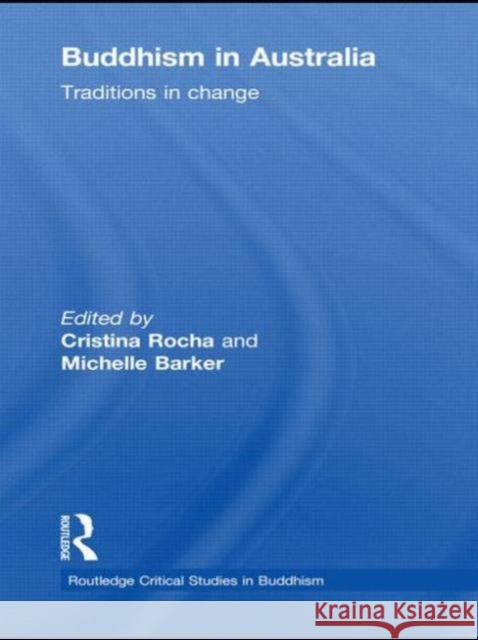Buddhism in Australia: Traditions in Change » książka
Buddhism in Australia: Traditions in Change
ISBN-13: 9780415568180 / Angielski / Twarda / 2010 / 174 str.
Buddhism in Australia: Traditions in Change
ISBN-13: 9780415568180 / Angielski / Twarda / 2010 / 174 str.
(netto: 676,35 VAT: 5%)
Najniższa cena z 30 dni: 701,49
ok. 16-18 dni roboczych.
Darmowa dostawa!
The number of Buddhists in Australia has grown dramatically in recent years. In 2006, Buddhists accounted for 2.1 per cent of Australia's population, almost doubling the 1996 figures, and making it the fastest growing religion in the country. This book analyses the arrival and localisation of Buddhism in Australia in the context of the globalisation of Buddhism. Australia's close geographical proximity to Asia has encouraged an intense flow of people, ideas, practices and commodities from its neighbouring countries, while at the same time allowing the development of the religion to be somewhat different to its growth in other Western countries. The book seeks to explore the Buddhist experience in Australia, looking at the similarities and particularities of this experience in relation to other Western countries. The inception of Buddhism in Australia is investigated, and a voice is provided to people on the ground who have been fundamental in making this process possible. For the first time, academic analysis and practitioners' experience are juxtaposed to show the adaptations and challenges of Buddhism in Australia from above and below. This book is a unique and valuable contribution to the study of Buddhism in the West, globalization of religion, and studies in Asian Religion.
This book analyses the arrival and localisation of Buddhism in Australia in the context of the globalisation of Buddhism. In 2006, Buddhists accounted for 2.1 per cent of Australiaâs population, almost doubling the 1996 figures, and making it the fastest growing religion in the country. Unlike the US and the Europe, Australia is located close to Asia, and as such has received intense flows of people, ideas, and commodities from its neighbouring countries.
This book investigates the inception of Buddhism in the country whilst also providing a voice to people on the ground who have been fundamental in making this process possible. For the first time, academic analysis and practioners' experience are juxtaposed to show the adaptations and challenges of Buddhism in Australia from above and below. This book is a unique and valuable contribution to the study of Buddhism in the West.











